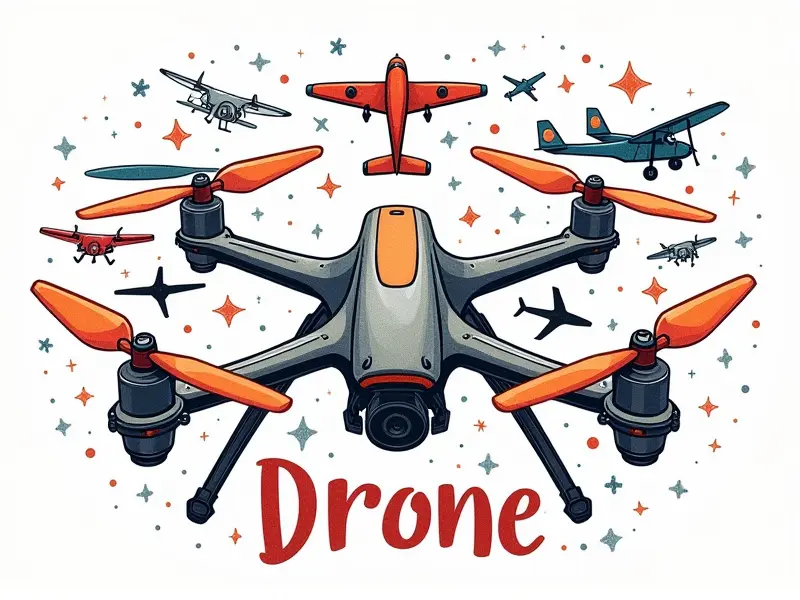Drone regulations and laws

Drone Regulations and Laws: A Comprehensive Guide
As the popularity of drones continues to soar, it's essential to understand the regulations and laws governing their use. From FAA rules in the United States to international guidelines, this article provides a detailed overview of drone legislation.
FAA Regulations for Drones Explained
The Federal Aviation Administration (FAA) is responsible for regulating drones in U.S. airspace. Key regulations include:
- Pilot Certification: Most commercial operators need a Remote Pilot Certificate.
- Aircraft Registration: All drones must be registered with the FAA before use.
- No-Fly Zones: Drones are prohibited in certain areas, such as near airports and restricted military zones.
- Flying Altitudes: Maximum altitude is 400 feet above ground level for most operations.
International Drone Laws: A Quick Guide
Different countries have varying regulations. Here are some key points to consider:
- E.U. Regulations: The European Union has established rules similar to the FAA's, including registration and pilot certification.
- Canada: Transport Canada regulates drones with specific requirements for commercial use.
- Australia: Civil Aviation Safety Authority (CASA) oversees drone operations in Australia.
Privacy Laws for Drones: Protecting Your Rights
Drones can raise privacy concerns, especially when used to capture images or videos of private property. Key points include:
- Trespassing: Operating a drone over someone's property without consent is illegal.
- Data Protection: Collecting data through drones must comply with GDPR and other privacy laws.
Commercial Drone Operations Legalities
Businesses using drones for commercial purposes need to adhere to specific legal requirements:
- Remote Pilot Certificate: Commercial operators require certification from the FAA.
- Insurance Coverage: Liability insurance is often required to cover potential damages or injuries.
No-Fly Zones and Drone Restrictions
The FAA has designated several areas where drones are not allowed. Common no-fly zones include:
- Airports, military bases, and other sensitive locations.
- National parks and wildlife reserves to protect natural habitats.
- Areas near stadiums during major events for security reasons.
Hobbyist Drone Rules and Regulations
Hobbyists also need to follow specific rules:
- Registration: Drones weighing over 0.55 pounds must be registered with the FAA.
- Flying Altitudes: Hobbyist drones can fly up to 400 feet above ground level.
Drone Registration Requirements in the US
All drones weighing more than 0.55 pounds must be registered with the FAA before use. This includes:
- Filling out an online form: Provide basic information about the drone and operator.
- Paying a fee: Registration costs $5 for a three-year period.
Drone Insurance: Is It Necessary?
While not mandatory, insurance is highly recommended to cover potential accidents or damages. Key aspects include:
- Liability Coverage: Protects against property damage and personal injury claims.
- Aircraft Damage Insurance: Covers repair costs for the drone itself.
Legal Flying Altitudes for Drones
The FAA sets strict altitude limits to ensure safety:
- Maximum Altitude: 400 feet above ground level for most operations.
- No-Fly Zones: Avoid flying over densely populated areas or restricted airspace.
Penalties for Violating Drone Laws
Failing to comply with drone regulations can result in severe penalties, including:
- Civil Penalties: Fines up to $27,500 per violation.
- Criminal Charges: Possible imprisonment for serious violations.
Future of Drone Legislation Trends
The rapid advancement of drone technology is prompting regulatory bodies to update their laws accordingly. Future trends include:
- Increased Automation: Regulations may address autonomous drones and AI integration.
- Safety Enhancements: Stricter rules for flight safety and collision avoidance systems.
Conclusion
Navigating the complex landscape of drone regulations can be challenging, but adhering to these laws is crucial for safe and legal operation. Whether you're a hobbyist or commercial operator, understanding the specific requirements in your jurisdiction will help ensure compliance and prevent potential penalties.

